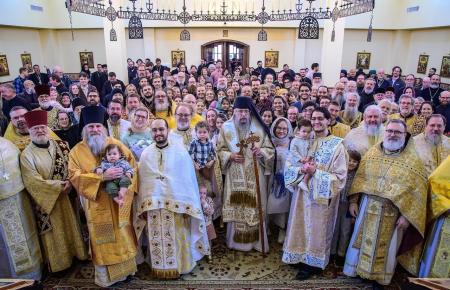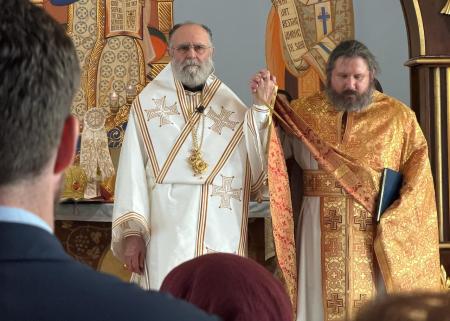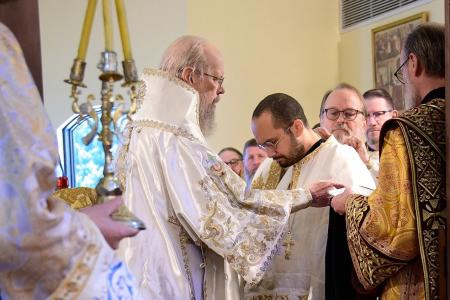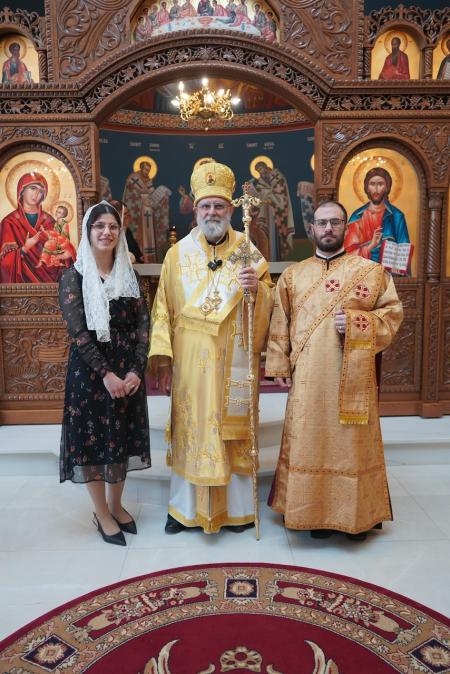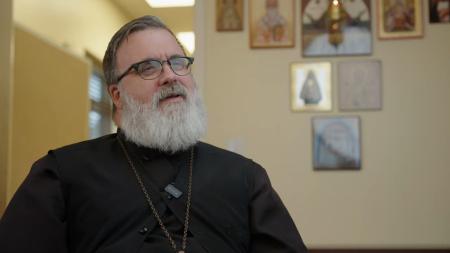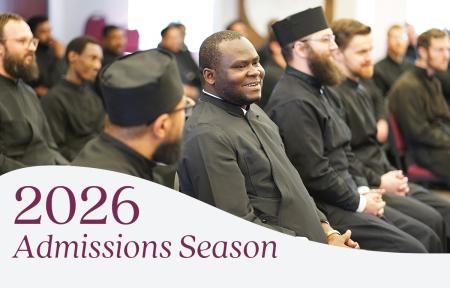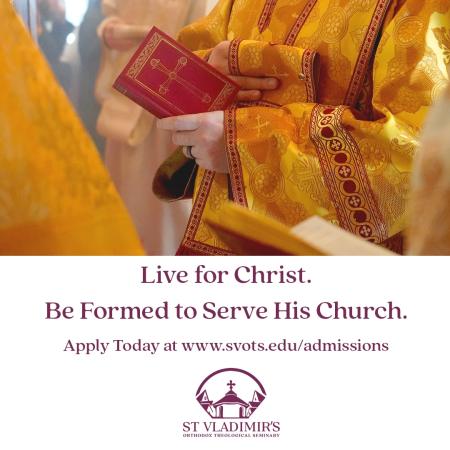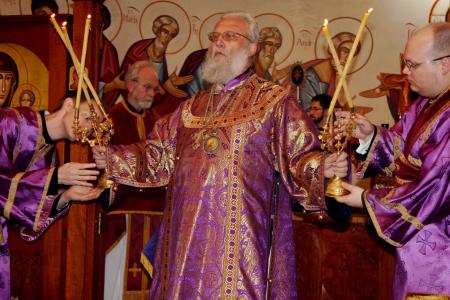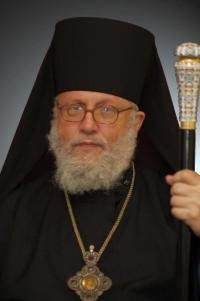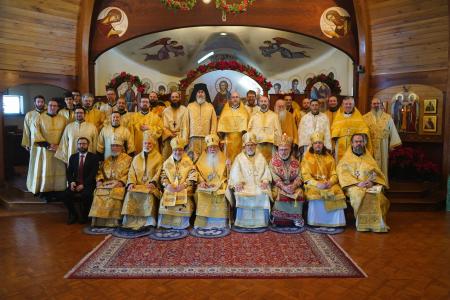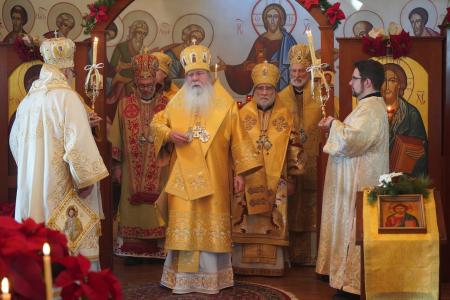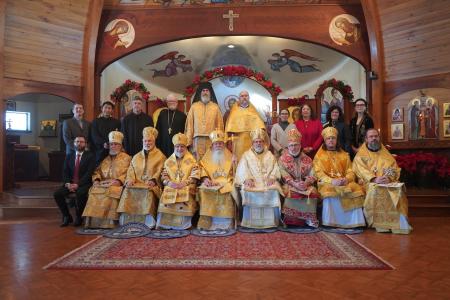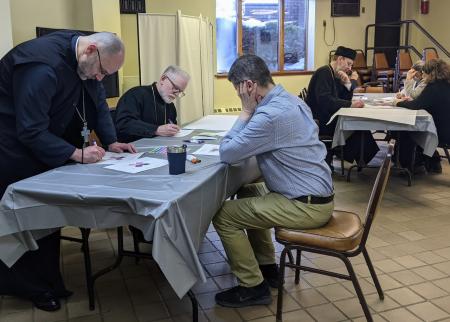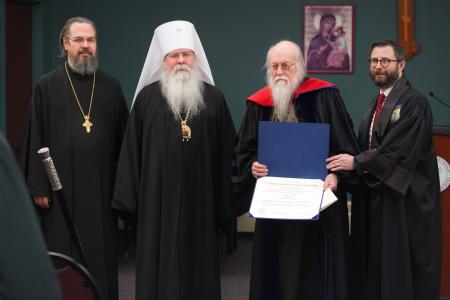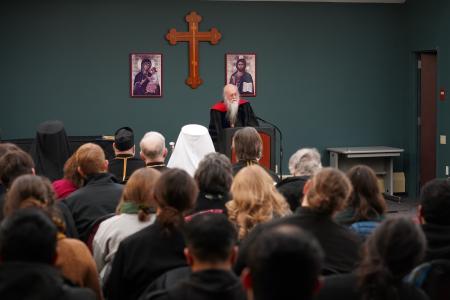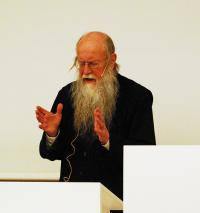In Memoriam: Mitchell Zunich
With faith in Christ and hope in the resurrection, we share news of the repose of St. Vladimir’s Seminary Trustee Emeritus Mitchell Zunich. Zunich, 93, died on the Feast of Holy Pascha, Sunday, April 19, at his home at St. Mary of the Woods Assisted Living in Avon, OH.
Zunich was born May 10, 1926 in Lorain, OH. He served with the US Army during World War II in the 357th Regiment of the 90th Infantry Division. During his service, he participated in the battles of Rhineland and Central Europe and received the European-African-Middle-Eastern Theater Ribbon with two Bronze Stars, a Good Conduct Medal, a WWII Victory Medal and an Occupation Medal for Germany. His division was awarded the Bronze Star and participated in the liberation of Flossenburg Concentration Camp. Zunich attended the Ohio State University where he earned a bachelor of science in accounting. He founded Mitchell Zunich & Co. Certified Public Accountants, retiring in 2001. He was active in the community, having served as an officer, president, and board member of many organizations including the Lorain Rotary Club, Lorain Salvation Army, Lorain Metropolitan Housing Authority, the City Bank Co., Lorain Family YMCA, Clearview School Board, and St. Vladimir’s Orthodox Theological Seminary. In the 1990s, Mitchell and his wife, Violet, helped establish a scholarship for Serbian Orthodox seminarians at St. Vladimir’s so that no young Serbian Orthodox men would be turned away from becoming priests. Zunich was a member of St. George Serbian Orthodox Church in Lorain, the Serbian National Federation, the Ohio Society of CPAs, and the AICPA.
"Mitch was honored to be on the Seminary’s Board of Trustees," said fellow St. Vladimir's Trustee Emeritus Brian Gerich. "He served many years as one of the four Serbian trustees along with [Trustee Emeritus] Alex Machaskee, Leon Lysaght, and myself.
"During our 1990’s Capital Campaign, I asked Mitch to join with me in establishing endowments for scholarships for Serbian Orthodox students studying to become priests. He immediately accepted, and he and his beloved wife Violet added to their endowment regularly. Mitch was pleased to know that as students graduated they were debt free as they prepared for a lifetime of serving our Lord."
"I remember Mitch as a quiet, decisive, compassionate gentleman who was a staunch supporter of our Orthodox Christian faith and a great contributor of time, talent, and treasure to St. Vladimir's Seminary," added Alex Machaskee. "He was a founding contributor to Monastery Marcha in Richfield Ohio, a decorated veteran of World War II, and a highly esteemed civic leader."
Mitchell Zunich is survived by his sons, Mitch Zunich of Cleveland and Rob (Eva) Zunich of Avon Lake; grandchildren, Neven, Dane, Rada, and Mila Zunich; and sister, Sophie Tyrin of Chicago. Zunich was preceded in death by his wife of 58 years, Violet M. Zunich (née Kobac) on Sept 7, 2014; infant son, Nick Zunich, in 1959; parents, Nikola & Stanka Zunich (née Kunic); brothers, Demeter, George, Nick, and Mike Zunich; and sisters, Mildred Stamatis, Dorothy Kovan, Nellie Raynovich, and Mary Zunich.
Due to restrictions on social gatherings during the COVID-19 pandemic, private family funeral services will be held. Hieromonk Nektarije Tesanovic of St. George Serbian Orthodox Church will preside with burial to follow in Elmwood Cemetery in Lorain. Memorial contributions may be made to St. George Serbian Orthodox Church, 3355 Grove Ave, Lorain, OH, 44055 or St. Vladimir’s Orthodox Theological Seminary, 575 Scarsdale Rd, Yonkers, NY, 10707. Arrangements are under the direction of Gluvna-Shimo-Hromada Funeral Chapel, 3224 Broadway Ave, Lorain. Online condolences may be made at www.gluvna.net.
May the memory of Mitchell Zunich be eternal!
--
(The photo and some information in this article have been reprinted from The Morning Journal.)

